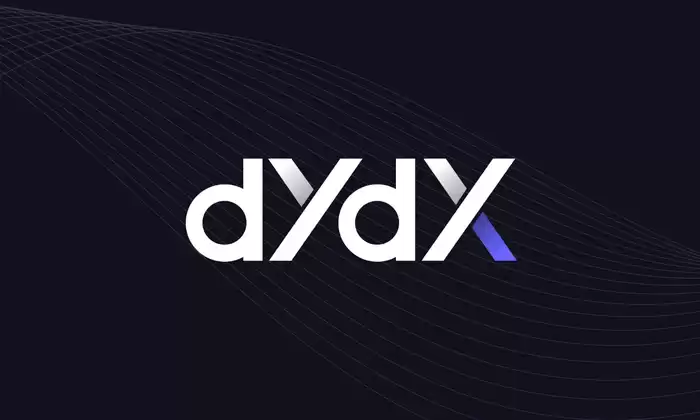-
 Bitcoin
Bitcoin $116400
1.84% -
 Ethereum
Ethereum $3808
5.51% -
 XRP
XRP $3.049
2.94% -
 Tether USDt
Tether USDt $1.000
0.02% -
 BNB
BNB $772.2
0.81% -
 Solana
Solana $170.6
2.40% -
 USDC
USDC $0.9998
0.00% -
 TRON
TRON $0.3406
1.84% -
 Dogecoin
Dogecoin $0.2128
5.71% -
 Cardano
Cardano $0.7601
4.10% -
 Hyperliquid
Hyperliquid $39.47
3.36% -
 Sui
Sui $3.732
8.66% -
 Stellar
Stellar $0.4114
5.02% -
 Chainlink
Chainlink $17.63
6.61% -
 Bitcoin Cash
Bitcoin Cash $576.6
2.60% -
 Hedera
Hedera $0.2508
4.44% -
 Ethena USDe
Ethena USDe $1.001
0.00% -
 Avalanche
Avalanche $22.58
2.61% -
 Litecoin
Litecoin $120.6
3.70% -
 UNUS SED LEO
UNUS SED LEO $8.956
-0.35% -
 Toncoin
Toncoin $3.315
2.66% -
 Shiba Inu
Shiba Inu $0.00001258
3.02% -
 Uniswap
Uniswap $10.04
5.37% -
 Polkadot
Polkadot $3.754
3.67% -
 Dai
Dai $1.000
-0.01% -
 Bitget Token
Bitget Token $4.399
1.64% -
 Monero
Monero $271.5
-4.74% -
 Cronos
Cronos $0.1469
4.47% -
 Pepe
Pepe $0.00001080
4.13% -
 Aave
Aave $272.2
5.52%
What is DYDX? What does DYDX mean?
DYDX, a decentralized exchange built on the Ethereum blockchain, was founded in 2017 and facilitates the trading of perpetual contracts, allowing users to speculate on asset prices without ownership or borrowing.
Nov 04, 2024 at 04:44 am

What is DYDX?
DYDX is a decentralized exchange (DEX) built on the Ethereum blockchain. It was founded in 2017 and is used to trade perpetual contracts, a type of financial derivative that allows traders to speculate on the future price of an asset without having to own or borrow it.
What does DYDX mean?
DYDX is an acronym that stands for "dYdX Trading". "dY" refers to "decentralized yield", which is the interest earned on cryptocurrencies deposited on the platform, and "X" refers to "exchange".
How does DYDX work?
DYDX uses a series of smart contracts that run on the Ethereum blockchain. These smart contracts allow for anonymous trading between two parties on the exchange. Orders are placed on the order book, which is a public record of all orders submitted to buy or sell an asset.
DYDX also offers a number of features to facilitate trading, including:
- Margin trading—traders can leverage their positions up to 9x, which allows for more flexibility in risk management
- Liquidation protection—if a trader's losses exceed a certain threshold, their positions will be liquidated to prevent further losses
- Sub-account system—traders can create sub-accounts to manage multiple positions with different risk parameters
What are the benefits of using DYDX?
DYDX offers a number of benefits to traders, including:
- Decentralization—DYDX is built on the Ethereum blockchain, which means that it is not centralized and is not controlled by any one entity.
- Security—smart contracts and the Ethereum blockchain provide a high level of security for traders and their assets.
- Transparency—the order book and transaction history for DYDX are publicly viewable, ensuring transparency in the trading process.
- Liquidity—DYDX has a significant trading volume and depth, which means that traders can execute their orders quickly and easily.
- Leverage—the high leverage offered by DYDX can allow traders to amplify their gains, although it also increases their risk of losses.
What are some of the risks of using DYDX?
- Smart contract risk— smart contracts are complex and can contain bugs or vulnerabilities; if a vulnerability is discovered, it could result in the loss of trader funds.
- Liquidity risk—liquidity can be unpredictable, especially in volatile market conditions; if liquidity dries up, traders may be unable to execute their orders immediately and may experience slippage.
- Leverage risk—leveraging your positions can increase your probability of profit as well as loss.
- Counterparty risk—DYDX is a peer-to-peer exchange, so when you trade, you do so directly with other users and not with the exchange itself. This means that if the other party fails to fulfill their obligations, you may lose your funds.
- Regulatory risk—as the regulatory landscape for cryptocurrency and decentralized exchanges continues to evolve, it is possible that DYDX or similar platforms could be regulated or restricted in certain jurisdictions.
Disclaimer:info@kdj.com
The information provided is not trading advice. kdj.com does not assume any responsibility for any investments made based on the information provided in this article. Cryptocurrencies are highly volatile and it is highly recommended that you invest with caution after thorough research!
If you believe that the content used on this website infringes your copyright, please contact us immediately (info@kdj.com) and we will delete it promptly.
- Ripple, Rail, and Stablecoin Payments: A $200M Power Play
- 2025-08-07 22:50:12
- Punisher Coin Presale: The Next $Trump? Aiming for 100x Gains!
- 2025-08-07 22:50:12
- Riding the Crypto Wave: Presale Cryptos, Cold Wallets, and the BTC Bull Run
- 2025-08-07 23:10:12
- Crypto's Wild Ride: Punisher Coin, Popcat, and the Meme Coin Mania
- 2025-08-07 23:10:12
- Bitcoin Price, XRP Prediction, Cryptocurrency: Navigating the Wild West of Digital Assets
- 2025-08-07 23:15:12
- WiMi, Quantum Computing, and AR Tech: Navigating the Future Today
- 2025-08-07 22:30:12
Related knowledge

What is Ethereum’s Slashing mechanism and how to punish malicious behavior?
Feb 20,2025 at 03:08am
Key PointsOverview of slashingDifferent types of slashing in EthereumIncentives and consequences of slashingIdentifying and reporting slashed validato...

What is the verifier node of Ethereum and how to become a verifier?
Feb 19,2025 at 06:00pm
The Verifier Node of Ethereum: A Comprehensive GuideKey Points:What is a Verifier Node?How to Become a Verifier NodeResponsibilities and Rewards of a ...

What is Ethereum’s staking, and how to participate and earn money?
Feb 19,2025 at 04:37pm
Key Points:Understanding Ethereum's Staking MechanismSteps to Participate in StakingBenefits and Rewards of StakingSecurity and Risk ConsiderationsTec...

What is Ethereum’s DAO (Decentralized Autonomous Organization) and how does it work?
Feb 20,2025 at 03:12am
Key PointsDefinition and Structure of a DAOGovernance and Decision-Making in DAOsBenefits and Use Cases of DAOsChallenges and Limitations of DAOsWhat ...

What is Ethereum's multi-signature wallet and how to improve security?
Feb 20,2025 at 02:18pm
Key Points:Understanding the Concept of a Multi-Signature WalletBenefits and Drawbacks of Multisig WalletsRequirements for Setting Up a Multisig Walle...

What is Ethereum's oracle and how to provide data for smart contracts?
Feb 21,2025 at 01:30am
Key Points:Understanding the concept of oracles in EthereumExploring different types of oraclesDetailed guide on how to provide data for smart contrac...

What is Ethereum’s Slashing mechanism and how to punish malicious behavior?
Feb 20,2025 at 03:08am
Key PointsOverview of slashingDifferent types of slashing in EthereumIncentives and consequences of slashingIdentifying and reporting slashed validato...

What is the verifier node of Ethereum and how to become a verifier?
Feb 19,2025 at 06:00pm
The Verifier Node of Ethereum: A Comprehensive GuideKey Points:What is a Verifier Node?How to Become a Verifier NodeResponsibilities and Rewards of a ...

What is Ethereum’s staking, and how to participate and earn money?
Feb 19,2025 at 04:37pm
Key Points:Understanding Ethereum's Staking MechanismSteps to Participate in StakingBenefits and Rewards of StakingSecurity and Risk ConsiderationsTec...

What is Ethereum’s DAO (Decentralized Autonomous Organization) and how does it work?
Feb 20,2025 at 03:12am
Key PointsDefinition and Structure of a DAOGovernance and Decision-Making in DAOsBenefits and Use Cases of DAOsChallenges and Limitations of DAOsWhat ...

What is Ethereum's multi-signature wallet and how to improve security?
Feb 20,2025 at 02:18pm
Key Points:Understanding the Concept of a Multi-Signature WalletBenefits and Drawbacks of Multisig WalletsRequirements for Setting Up a Multisig Walle...

What is Ethereum's oracle and how to provide data for smart contracts?
Feb 21,2025 at 01:30am
Key Points:Understanding the concept of oracles in EthereumExploring different types of oraclesDetailed guide on how to provide data for smart contrac...
See all articles

























































































